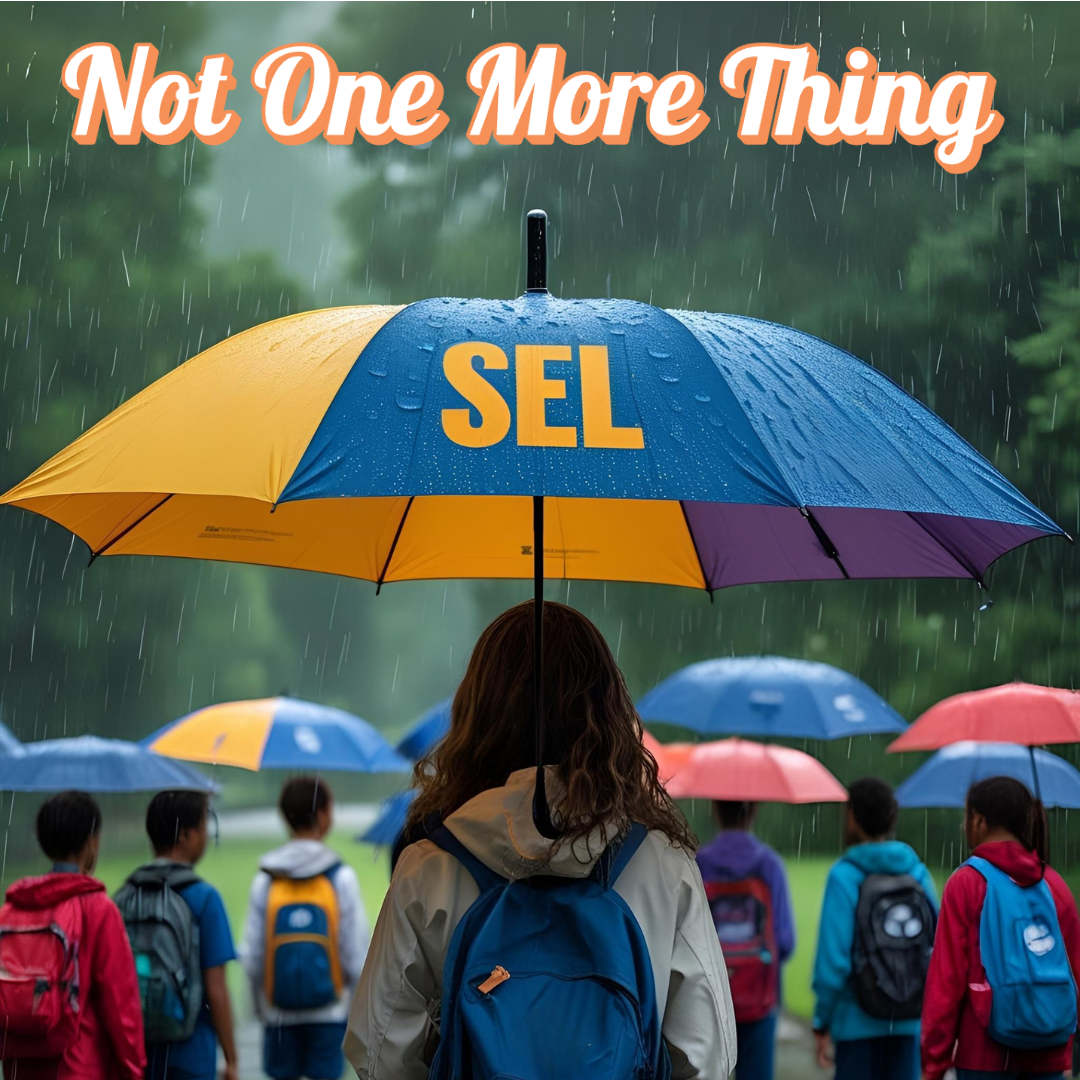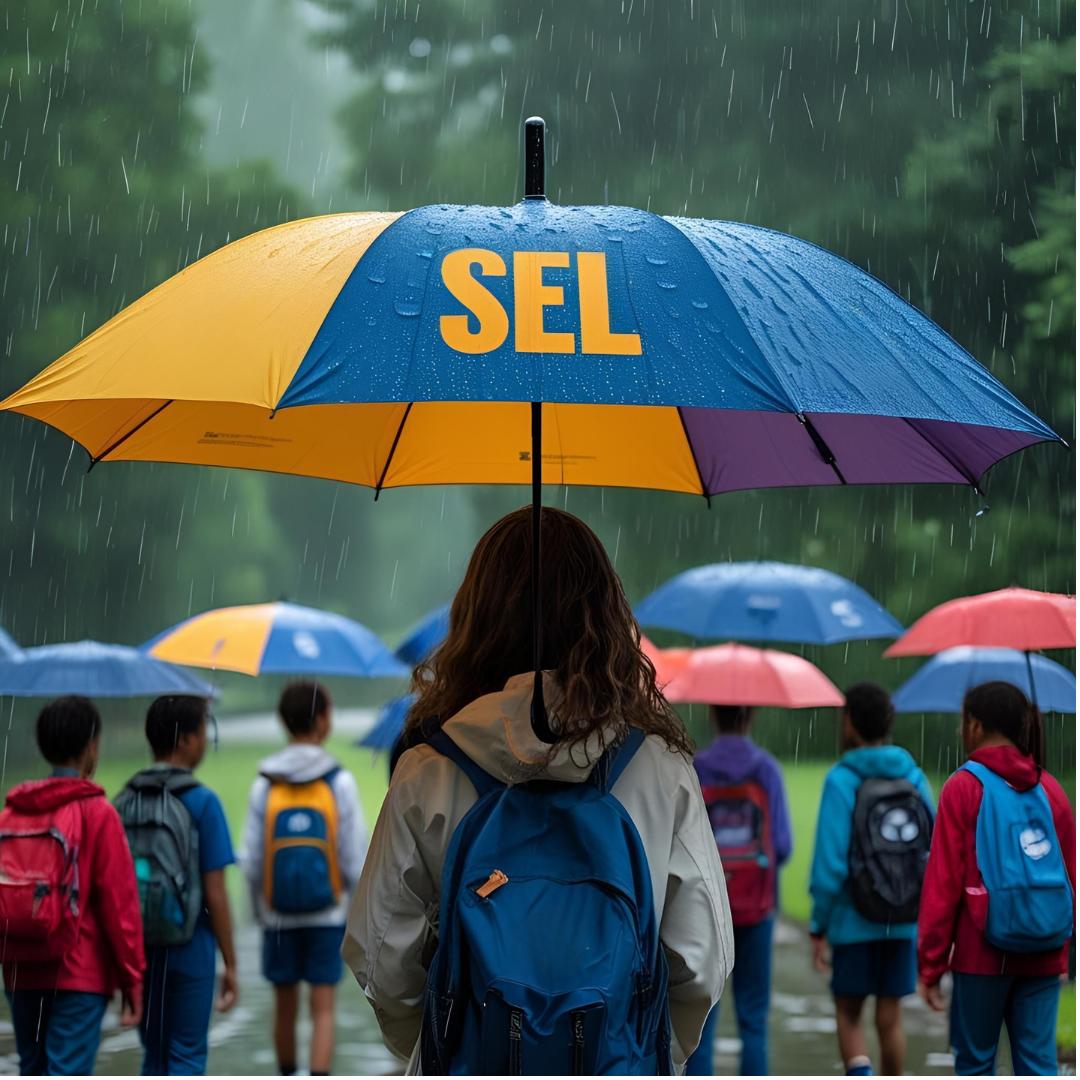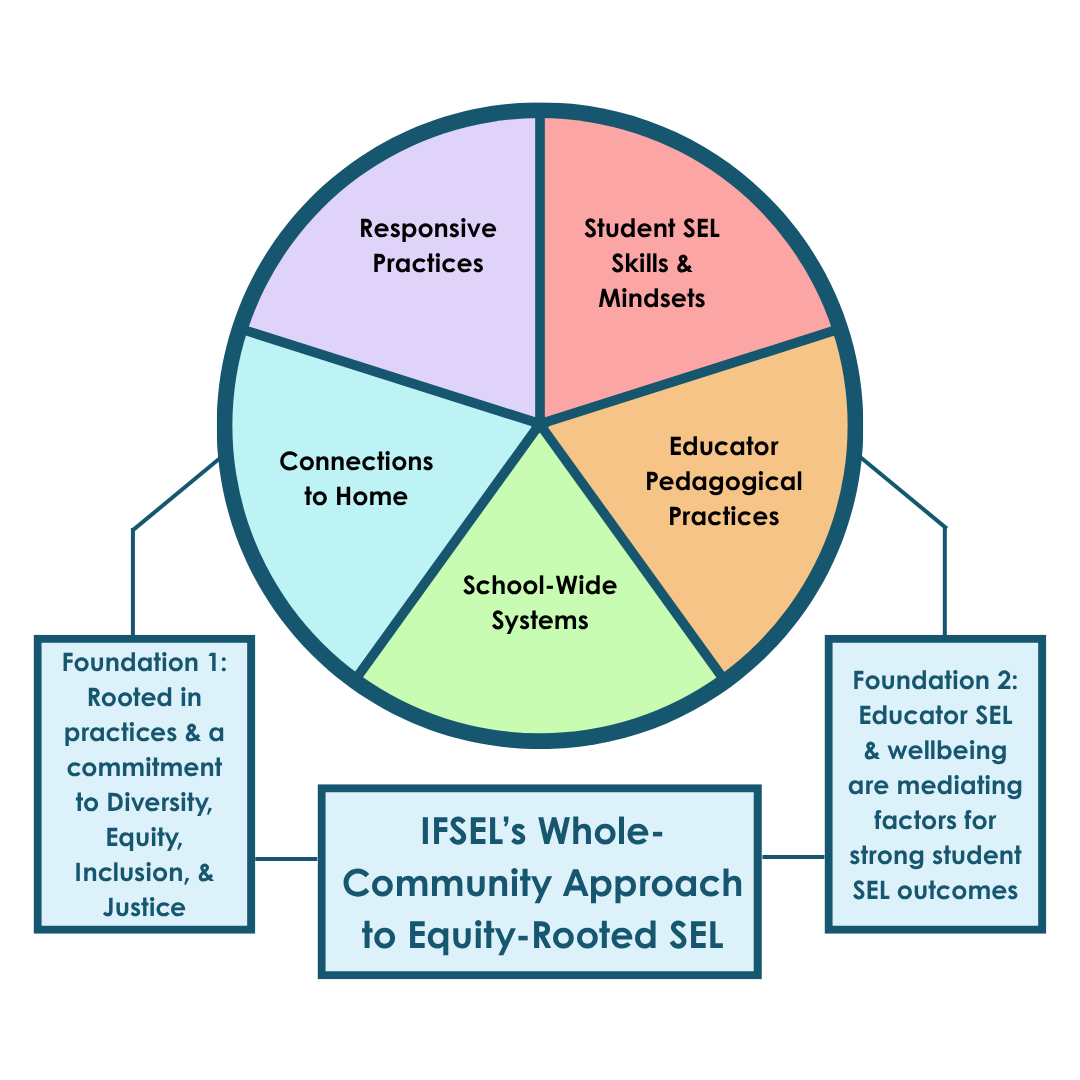Free TeachMeet on September 23: Navigating the Election

.png)



We’re living in a time of overwhelming complexity. As parents, educators, and leaders, it can feel like we’re being asked to solve everything all at once.

Social media is reshaping childhood. AI is changing what learning even means. Teachers are exhausted. Students are anxious. We are bombarded with alarming news about an epidemic of loneliness and isolation by choice. School communities are stretched, and every week seems to bring a new initiative or solution that promises to fix it all or one more "urgent" priority that requires training and new tools.
It’s no wonder educators are asking: Can we really take on one more thing?
Here’s the good news. We don’t need one more thing. We need to remember the one thing that holds everything else together.
That thing is Social and Emotional Learning (SEL). When embedded throughout the school experience with equity, SEL is not a box to check or a program to add. At IFSEL (Institute for Social and Emotional Learning), we use the metaphor of an umbrella (or plate or foundation or glasses.) SEL is a way of being that sustains and connects everything else we care about in schools: academic learning, wellbeing, justice, connection, and even the future of our planet.
Especially now, there is confusion about what SEL is and is not. Some schools can’t even use the word or acronym anymore. Yet, at its core, SEL has always been the foundation of good teaching and relationships. SEL is a lifelong, dynamic process of developing the mindsets, skills, and habits that help us understand ourselves, relate to others, and contribute to our communities. It’s about awareness, empathy, regulation, resilience, and compassion. SEL is not just for students; it has to start with the adults.
At IFSEL , we’ve worked for years to deepen and refine how this work can be woven throughout school communities. Drawing from CASEL’s respected framework and competencies, these skills are contextual, dynamic, and relational. They help communities address the very real challenges of inequity, trauma, disconnection, and change.
But SEL isn’t just a list of skills. It’s an approach. It’s how we show up, how we listen, how we build trust, how we create belonging. It's not a liberal agenda; It’s a human framework for collective well-being; one that honors identity, lifts up voices, and equips communities to move through conflict, grief, and complexity with courage and care.
Here are four reasons why SEL, done well and with fidelity, isn’t just helpful. It’s essential:
Decades of research confirm that SEL supports academic achievement, mental health, physical well-being, and civic engagement. Studies like the Durlak meta-analysis show an 11-percentile-point boost in achievement for students who have SEL. As teachers, we have always known that when people feel seen, safe, and supported, it's possible to learn (and live) better.
The pandemic revealed and deepened many fractures in schools, families, and within ourselves. SEL offers pathways to rebuild what was broken: connection, trust, belonging. Former U.S. Surgeon General Dr. Vivek Murthy has named loneliness a public health crisis, and more recently Derek Thompson named our current era as "the age of isolation" - a time when people are choosing to be alone. This is even more significant. People are opting out of face to face connection. However, school remains a gathering place. So, the need to support Belonging for ALL members of the community is imperative, and that happens through intentional, relational work. SEL can be the umbrella for this work.
Diversity, Equity and Inclusion work depends on SEL mindsets like empathy, humility, and perspective-taking, and SEL without equity isn’t enough. IFSEL’s approach helps communities understand privilege, repair harm, and foster spaces where every student and adult can experience authentic belonging.
Our world is full of uncertainty. Climate grief, technological disruption, political polarization can feel overwhelming. SEL doesn’t give us all the answers, but it builds the inner capacity and interpersonal tools to respond with courage, connection, and compassion. SEL can prepare young people to lead, heal, and innovate in service of a world that needs them.
We believe in SEL. We value it. But how do we make it real, sustainable, and community-wide?
At IFSEL, we use a Whole Community Approach (WCA)—a model that helps schools embed SEL into the DNA of their culture. It’s not a checklist. It’s a living ecosystem. Think of it like a pie, where every slice is essential:

Skills and Mindsets
The competencies at the heart of SEL - self-awareness, relationship skills, responsible decision-making—are practiced in experiential and authentic ways. They’re taught through real stories, modeled by adults, and applied to life.
Educator Practices
This work begins with adults. Through creative pedagogical practices, reflection and play, educators can integrate SEL into all teaching and learning and build their own capacity for resilience, presence, and connection. The classroom is only as emotionally safe as the adults leading it.
School Structures
From discipline policies to recess, hiring and school trips; school systems are an opportunity to embed SEL values.
IFSEL’s lesson and curriculum design reflect five core principles:
- Competency-Based – Rooted in core SEL skills.
- Spiraling – Because SEL is not a "one and done" learning process. These skills need to be revisited, relearned, re-experienced at different developmental levels in ways that are experiential and authentic.
- Culturally Responsive & Contextual – Schools co-create their own scope and sequence using our Lesson Library as a resource, not a script.
- Authentic – Centering student voice and adult growth.
- Planned and Emergent – Structured, but flexible enough to respond to what’s alive in the room.
In a time when everyone feels overwhelmed, the answer is not to pile on more. The answer is to go deeper by returning to what matters most. SEL, when done right, doesn’t compete with your priorities. It connects them. It is the umbrella under which learning, justice, healing, and belonging can thrive. So no, we don’t need “one more thing.” We need the right thing, done with care, community, and courage. We need SEL.
In a time of overwhelming demands on schools, Social and Emotional Learning (SEL) is not “one more thing” — it’s the one thing that connects everything else that matters. SEL is a human-centered framework that fosters belonging, resilience, equity, and collective well-being. IFSEL’s Whole Community Approach helps schools embed SEL into everyday practices, relationships, and structures.
In a time of overwhelming demands on schools, Social and Emotional Learning (SEL) is not “one more thing” — it’s the one thing that connects everything else that matters. SEL is a human-centered framework that fosters belonging, resilience, equity, and collective well-being. IFSEL’s Whole Community Approach helps schools embed SEL into everyday practices, relationships, and structures.
See More